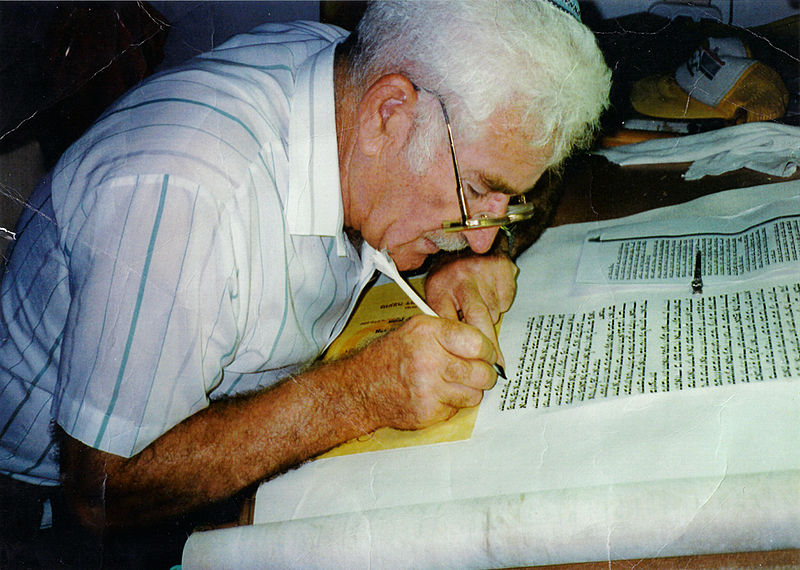
The Story
Shmuel came home from school and immediately went to his room to do his homework. His little brother and roommate, Naftali, was already at work. On his desk was a jar with a dollar bill inside.
“What’s the jar for?” Shmuel asked.
Yair explained. “Today at school we learned that their is a special mitzvah to hire a sofer to write a sefer Torah. I’ve decided to take one dollar from my allowance every week and start saving up! How long do you think it will take ’til I have enough money?”
Shmuel took out his calculator. “A sefer Torah probably costs at least $20,000 dollars to write. If you save one dollar each week, you will have enough after…384 years! Maybe you should consider saving your money for a different mitzvah?”
Discussion
Q: If it costs approximately $20,000 – $30,000 to have a sefer Torah written. Does every Jew have to spend this amount?
A: No, Rav Moshe Feinstein states that one has no obligation to spend money on a mitzva that will require more than 10 percent of their earnings. Even if a person wants to spend more, they might not even be allowed to spend more than 20 percent of their earnings (Iggros Moshe, Yoreh De’ah Vol. 1, no. 163). Therefore, the vast majority of people are not required to pay for an entire Sefer Torah to be written.
Q: Does that mean that the average person can’t fulfill the mitzva?
A: There are a number of options that many poskim suggest as affordable alternatives:
1) Some poskim believe that a person can perform the mitzva by paying for part of a Sefer Torah. Obviously, this is much more affordable, since one can even buy a single letter. It’s important that the person pay for a specific part of the Sefer Torah, i.e. that they be the only person that sponsored a that letter, word or pasuk in the Sefer Torah (Iggros Moshe, Yoreh De’ah Vol. 1, no. 163).
2) Other poskim argue that the essence of the mitzvah is related to Torah study, so that a person fulfills the mitzvah by having a Torah and other books of Torah study in their homes (this opinion is articulated by the Rosh). Going to a store and purchasing a set of chumashim or other Sifrei Kodesh is therefore a fulfillment of the mitzvah. The Sefer Hachinuch (613) writes that although the principal mitzvah applies to a full Sefer Torah, the mitzvah is also performed by purchasing other sefarim.
Back to our Story
After the boys learned the halachos with their parents, they each began to save money in a special jar labeled “sefer Torah“. A relatively short time later they were each the proud sponsor of a letter in a new sefer Torah that was written for their community.
(Written by Josh and Tammy Kruger, in collaboration with Rabbi Yehoshua Pfeffer. Based on the following article by Rabbi Pfeffer: http://www.dinonline.org/2011/09/23/the-mitzvah-of-writing-a-sefer-torah)


